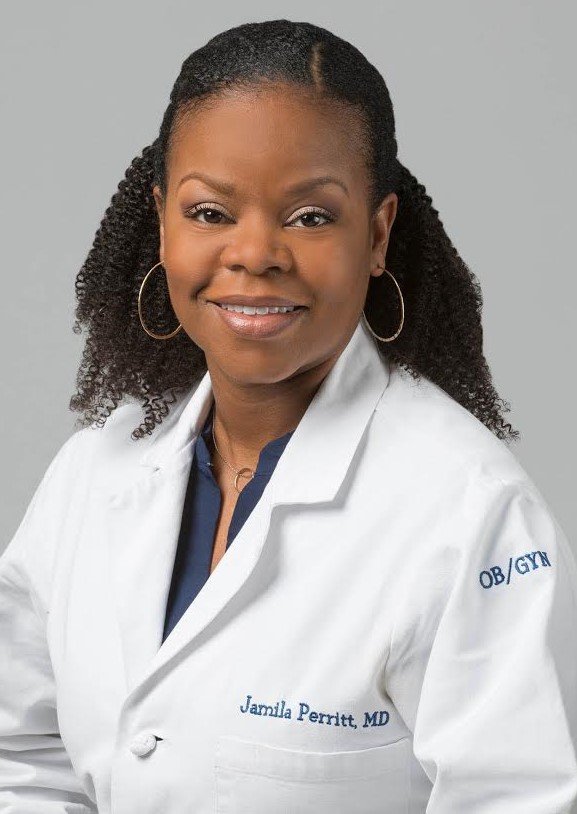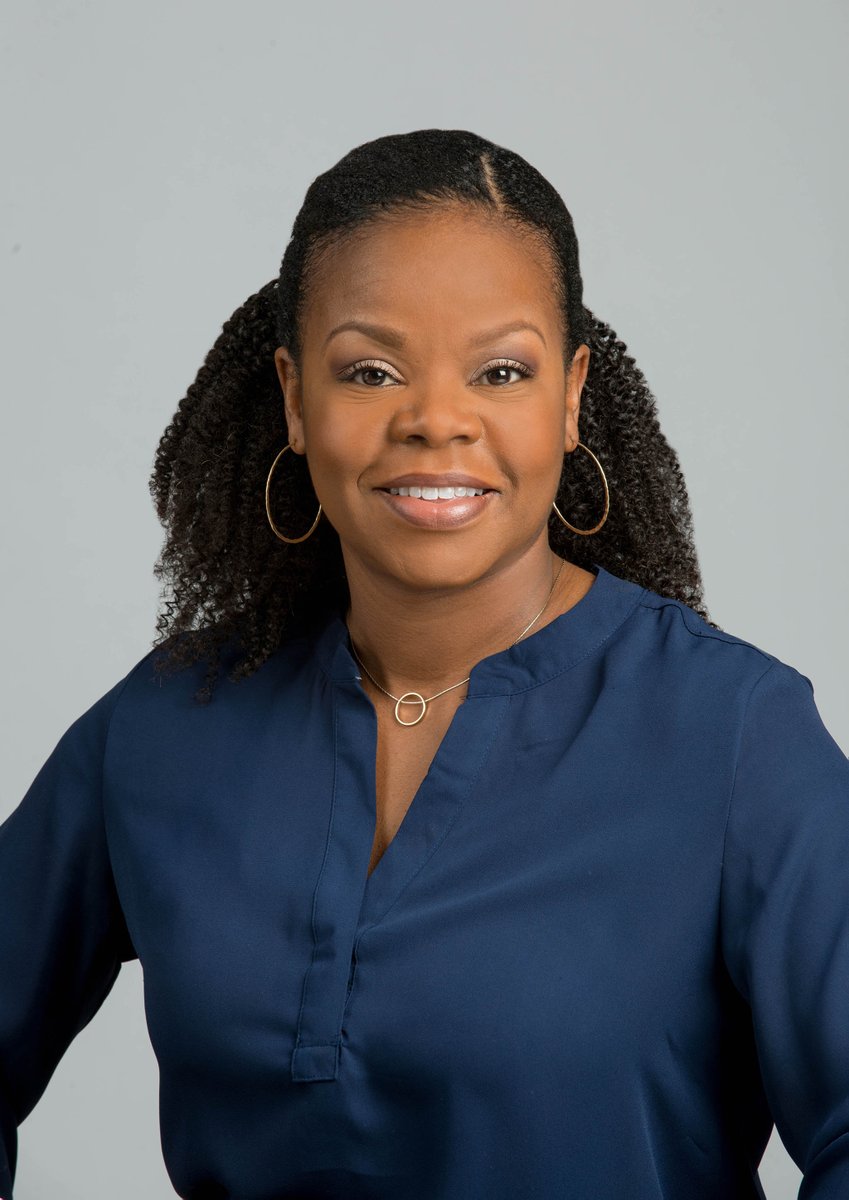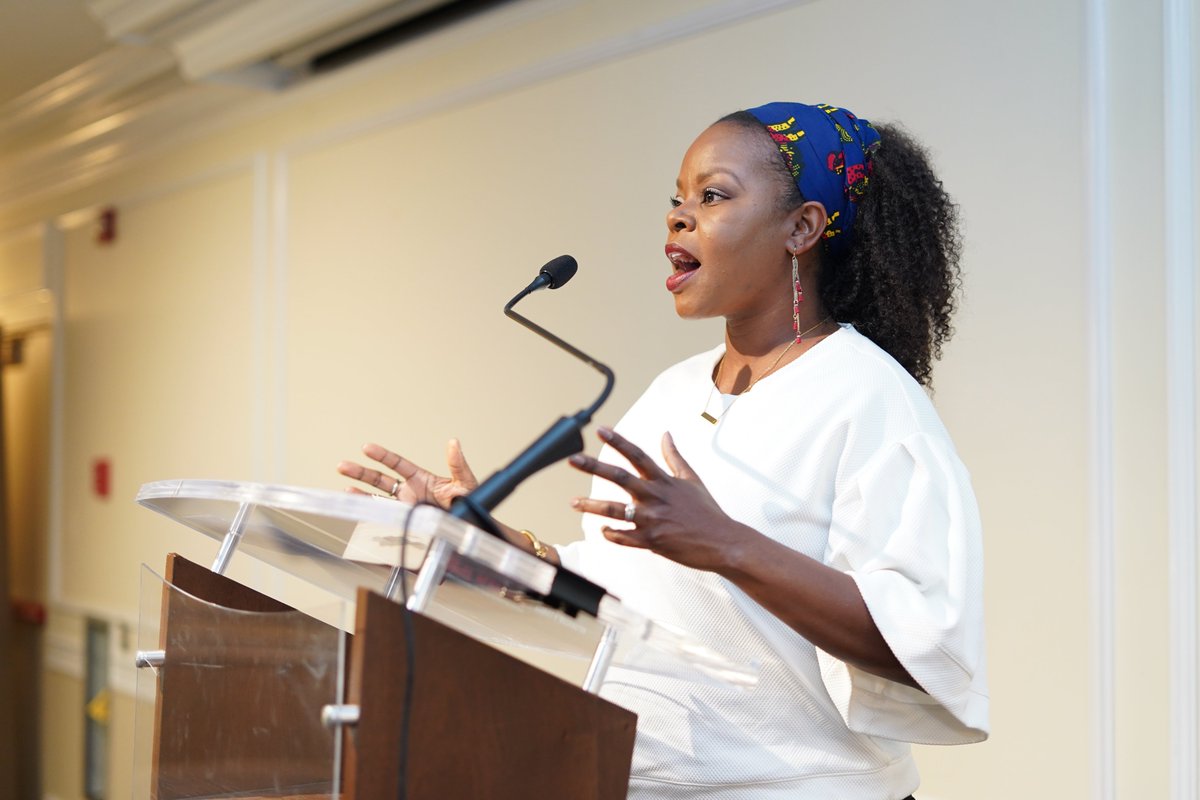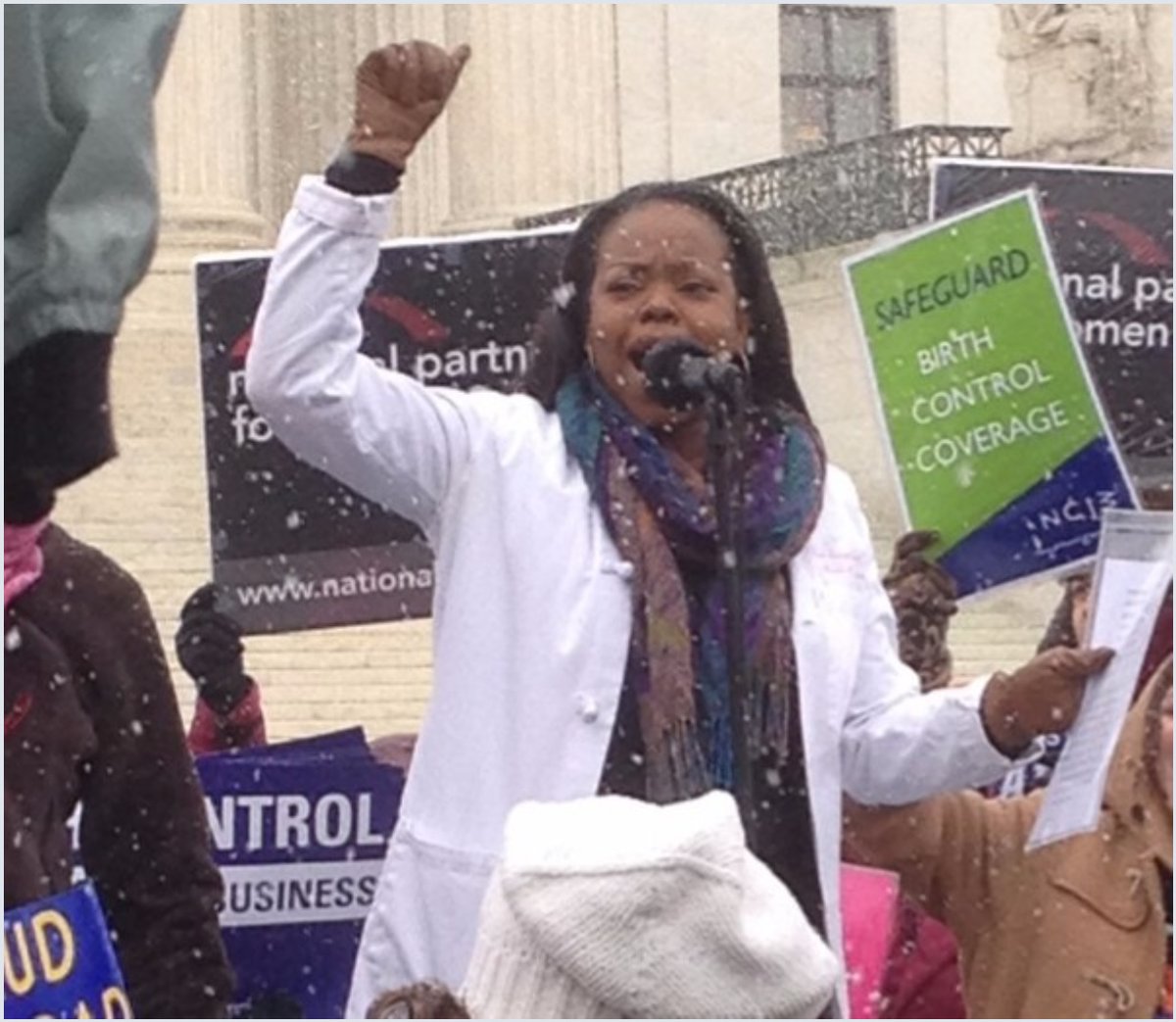Hi! I’m Dr. Jamila Perritt @reprorightsdoc and I’m taking over Dr. Grossman’s Twitter account today! I& #39;ll be tweeting about my work as an Ob/Gyn, and how reproductive justice, Black feminism, and decriminalization inform my medical practice. My tweets will be signed -JP
A little about me: I& #39;m a fellowship-trained Ob/Gyn. I received my undergraduate degree from Brown University, my medical degree from Howard University College of Medicine, and did my fellowship training and MPH at Johns Hopkins University. -JP http://jamilaperrittmd.com"> http://jamilaperrittmd.com
I am also a fellow with @acog, @prh and @societyfp. I am member of @BlkMamasMatter and a writer with @echoingida. Several days a week, I provide abortions at @PPMW and I am currently the board chair of @advocatestweets. -JP
I am proud to be a physician activist. As a front line provider of health care, I know first-hand the impact that decreased access to health services has on the lives of the communityI serve. I bring that expertise to testimonies and trainings that I give across the country. -JP
Understanding & operationalizing reproductive justice is central to my provision of gynecological and abortion care; for those who aren& #39;t familiar, reproductive justice is a term coined by 12 Black women in 1994 grounded in a human rights framework & Black feminist thought. -JP
Reproductive justice is a framework and theory rooted in the recognition of the histories of reproductive oppression and abuse in communities of color, and how those impact access to health care and community needs today. -JP
The core tenants of reproductive justice are the right to have a child, the right to not have a child, the right to parent our children in safe, sustainable communities, and the right to bodily autonomy. -JP
Reproductive justice considers a person’s entire reproductive experience and circumstances.
You can read more on reproductive justice here: http://forwardtogether.org/assets/docs/ACRJ-A-New-Vision.pdf">https://forwardtogether.org/assets/do... -JP
You can read more on reproductive justice here: http://forwardtogether.org/assets/docs/ACRJ-A-New-Vision.pdf">https://forwardtogether.org/assets/do... -JP
As a provider, I know that a person& #39;s full life experiences—race, class, gender identity, sexuality, where they live, their immigration status, their disabilities, and more—all factor into their reproductive health outcomes and needs. -JP
Using a reproductive justice lens also forces me to challenge my medical training that often ignores racism, bias, and is deeply rooted in injustice from its creation. -JP
J. Marion Sims "the founder of gynecology" experimented on enslaved Black women like Anarcha, Lucy & Betsey believing they couldn& #39;t feel pain. He wasn& #39;t an outlier. The racist beliefs that undergirded and promoted these practices still exist now. -JP https://www.npr.org/transcripts/466942135">https://www.npr.org/transcrip...
The birth control pill was created through experimentation on Puerto Rican women who were targeted because researchers believed they had high fertility rates that needed to be curbed, and because they didn’t have the political capital to push back. -JP https://remezcla.com/culture/birth-control-testing-puerto-rico/">https://remezcla.com/culture/b...
At Johns Hopkins, Henrietta Lacks and thousands of other unnamed Black people were exploited and used in medical trials in a predatory vortex of systemic poverty, inability to afford quality healthcare, and the university preying on local poor and Black residents. -JP
This horrific history is embedded in reproductive healthcare, and if we do not recognize it and understand it, we cannot understand where patients are coming from, particularly if they’re from a community that has a general distrust of my profession. -JP
Reproductive justice, as a practice, demands that I ground my work in this history for a broader understanding of what people are experiencing, move beyond a single issue analysis, and recognize the power I hold as a health provider in the clinical space. -JP
Reproductive justice challenges me to examine policies and procedures that reproduce and perpetuate past and current injustices, and show up as a learner in every space I& #39;m in, including the exam room with people I care for. -JP
It also demands I consider unintended consequences in the practice of medicine. When those most impacted by our policies, practices and procedures are not at the table when we create them, we are more likely to reproduce oppression and injustice than we are to eliminate them. -JP
Reproductive justice also demands that I honor my oath to “Do No Harm” Just because you didn’t mean harm, doesn’t mean you didn’t cause harm. -JP
I believe that reproductive justice as a framework is the future of how we as providers must care for our patients and our communities. Reproductive justice demands that Black lives matter, unequivocally and unapologetically even when most of the world doesn& #39;t. -JP
It demands we don’t just look at IF my patients have healthcare, but also understand that the ability to thrive means we need safe communities, healthy food to eat, clean water to drink, air to breathe, free of toxins, and a communities that are free from police violence. -JP
All of these things impact reproductive health. -JP
As a Black woman, a physician, and a parent to a Black child, anti-Blackness has been ever present in my own life, medical training, and community. This is the same for my patients. #BlackLivesMatter  https://abs.twimg.com/hashflags... draggable="false" alt=""> is at the core. -JP
https://abs.twimg.com/hashflags... draggable="false" alt=""> is at the core. -JP
In this moment, we& #39;re thinking more about criminalization in our communities, facilitated by police in schools, sent as first responders mental health emergencies, and dispatched as public health agents. These interactions can turn dangerous when care & treatment is best. -JP
Criminalization in healthcare disproportionately impacts people of color and poor folks. Our nation is asking police to solve issues that could & should be mitigated with access to therapy and community based providers, consistent access to medication, & preventive care. -JP
Anti-Blackness and other increased suspicions and misconceptions based on race means that women of color aren’t given the benefit of the doubt or believed when it comes to their pain, healthcare, and needs. -JP
In reproductive health, our nation consistently disinvests in clinics in communities, which means patients have to go without care, including access to birth control, gynecological check ups, prenatal care, or are forced to travel long distances for care, including abortion. -JP
This disinvestment in reproductive healthcare means patients of color aren’t able to get the care they need to have a healthy pregnancy or the ability to decide if, when, and how to grow their families. -JP
Lack of access to abortion care & increased restrictions means people aren’t able to get care. Suspicions grounded in the presumption of criminality or misinformation about mandatory reporting requirements puts them at risk for criminalization, rather than receiving care. -JP
In the cases of a self-managed abortion, the desire for someone to call the police leads to criminalization, rather than support and addressing the root causes of why someone couldn’t or wouldn’t go to a clinic for care. -JP https://www.vice.com/en_us/article/ypa8z7/the-new-reality-women-charged-for-murder-after-self-inducing-abortions">https://www.vice.com/en_us/art...
All of this is compounded by anti-Blackness, poverty, and other general stressors of living in a racist society that doesn’t believe that #BlackLivesMatter  https://abs.twimg.com/hashflags... draggable="false" alt="">. -JP
https://abs.twimg.com/hashflags... draggable="false" alt="">. -JP
But, what can we do to change the conversation? If you are a health care provider or work in the clinical space like me,here are a few of my recommendations: -JP
Know that it is YOUR responsibility to disrupt and then dismantle the system grounded in racism and white supremacy that marginalizes and harms BIPoC and then calls it care. -JP
Take the time, energy and spend the resources necessary to unlearn what you’ve been taught about the community you serve. These theories, ideas, frameworks are grounded in racist beliefs. Period. They are wrong and they cause harm. -JP
Shut up and listen. You might just learn something. -JP
You came to the work to take care of people, to care FOR PEOPLE. Understand that what we’re doing- what we’ve been taught to do- isn’t working. We still see huge inequities in health outcomes. Our communities still don’t trust us. We’re doing it wrong. -JP
Finally, my life was changed when I was introduced to the reproductive justice framework, and then I couldn’t stop reading more and more about it.
Some of the books I found most helpful to my learning are:
-JP
Some of the books I found most helpful to my learning are:
-JP
Medical Aparthied by @haw95 because an ahistorical context is the surest way to repeat the atrocities of the past and the present -JP https://bookshop.org/books/medical-apartheid-the-dark-history-of-medical-experimentation-on-black-americans-from-colonial-times-to-the-present/9780767915472">https://bookshop.org/books/med...
Revolutionary Mothering by @alexispauline @guerrillamama_ @china4101. Mothering takes many forms. It is our human right to parent our children in communities that are safe and sustainable and free from violence from the individual or the government -JP https://bookshop.org/books/revolutionary-mothering-love-on-the-front-lines/9781629631103">https://bookshop.org/books/rev...
Killing the Black Body by @DorothyERoberts because stratified reproduction is real and it is often codified into law and public policy -JP https://bookshop.org/books/killing-the-black-body-race-reproduction-and-the-meaning-of-liberty/9780679758693">https://bookshop.org/books/kil...
Radical Reproductive Justice by @LorettaJRoss @Womanist61 @jamiaw Erika Derkas, & Whitney Peoples because the mothers and godmothers of this movement already wrote the playbook y’all. Just read it. -JP https://bookshop.org/books/radical-reproductive-justice-foundation-theory-practice-critique/9781558614376">https://bookshop.org/books/rad...
I grew always knowing that I was supposed to be a doctor. I came to medicine and believe in it as a liberatory practice for myself and for my community. -JP
Thanks for joining in as I took over Dr. Grossman’s Twitter account today. You can follow me at @reprorightsdoc. I’ll be around to answer any questions you may have for the next hour or so before I have to go back to caring for my community! -JP

 Read on Twitter
Read on Twitter





